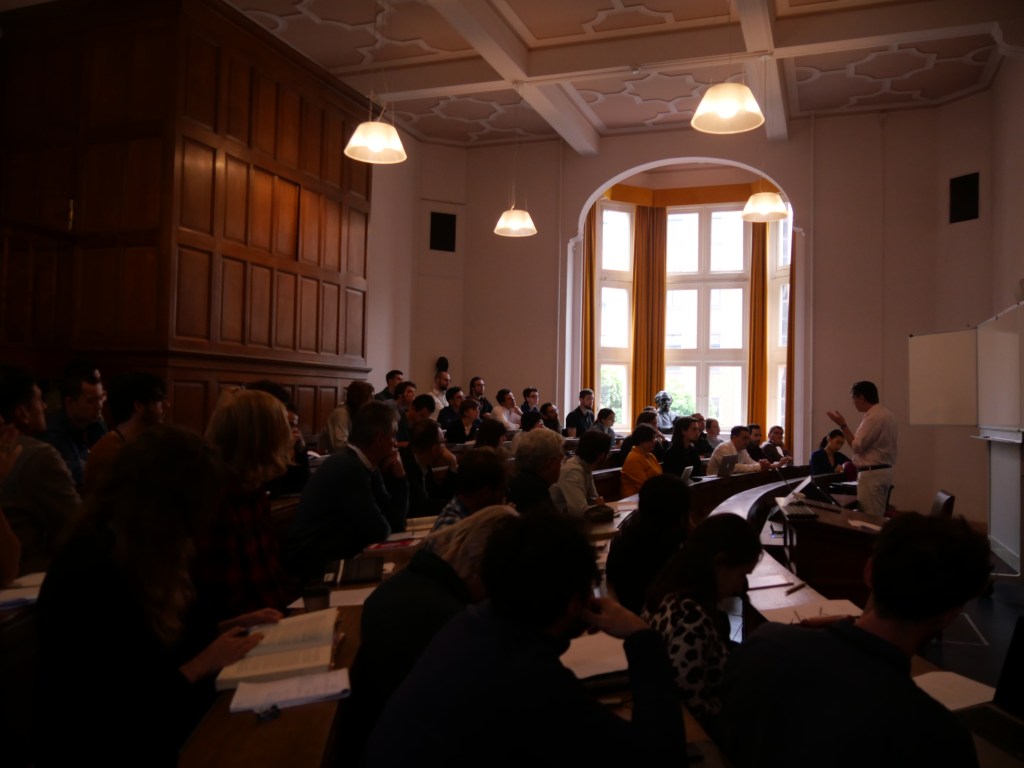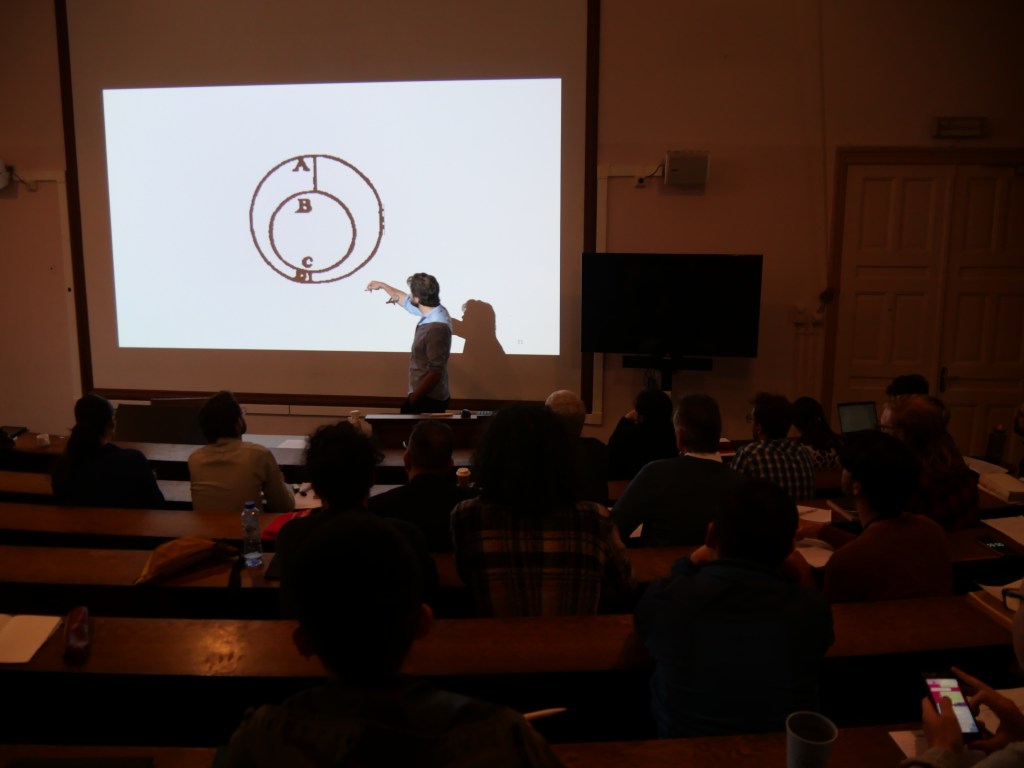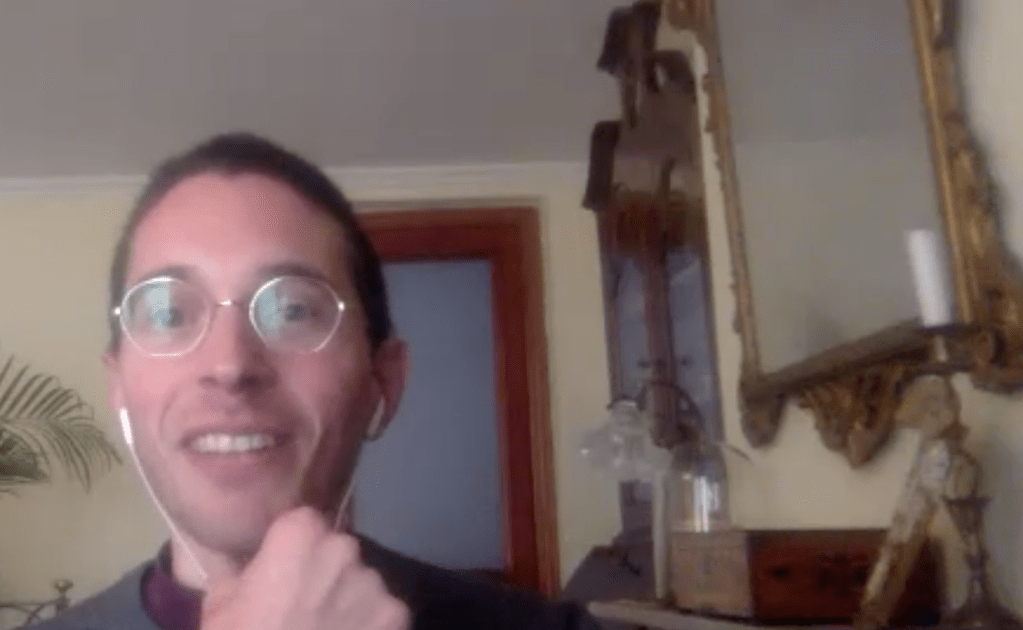Had you asked me three weeks ago what historians of philosophy should focus on, I would have replied that there is too much focus on individual authors, be they canonical or underrepresented figures, and return instead, at least every now and then, to the question of how certain texts fare in debates or in relation to problems. However, that was three weeks ago. Last week, I co-organised and participated in a summer school on Spinoza, the fourth edition of the so-called Collegium Spinozanum. Having experienced this, I am all in favour of focusing not only on individual authors, but on canonical ones. The reason is not that the current diversification attempts are bad or wrongheaded. Rather, I see studying canonical authors as a means to an important end in its own right: building a (research) community. In what follows, I’d like to explain this in a bit more detail and also say some things about forms of interaction and support in academic contexts.

(Collegium Spinozanum IV – Photo: Irina Ciobanu)
Unacknowledged reasons for being canonical. – The case for or against studying canonical authors is often made for supposed greatness versus political reasons. Great authors, it is assumed, are deemed thus because they were “great thinkers” who still speak to our concerns. Underrepresented authors, by contrast, are taken to be either just “minor figures” or “unduly neglected greats”. There is much that can be said critically about such lines of reasoning, but what I’d like to stress now is that these reasons largely ignore the community of readers, i.e. the recipients. Focussing on reasons in the “object of study”, they obscure the point that a good part of the reasons for choosing such an object might lie in the recipients and their common interests. But arguably it’s these common interests that shape a real community, not the supposed “lacuna in the literature”. So when a number of people thinks that we should read Spinoza, this might not be triggered by Spinoza (alone) but by the fact that there is something that speaks to certain people at a certain slice of time. In any case, this was the feeling I had when listening to all the papers and conversations at our summer school: We form a real community in that we want to talk and understand each other – a feeling that was not just sustained through the week but also by frequent references of participants to earlier editions of the Collegium (see the FB page related to earlier events).
A common corpus and language for diversity. – Given the diversity of interests (ranging from well-rehearsed arguments in Spinoza to seemingly remote theological questions, from detailed historical reconstructions to actually practised meditations), reciprocal understanding required and found a common corpus and language in Spinoza’s works. We were mostly about 60 people in the room, with quite different leanings, but everyone had at least read Spinoza’s Ethics and understood how parts were referenced. This point is by no means trivial when you’re part of a group composed of people from very different academic stages (ranging from professors near retirement to third-year BA students) and various geographical regions. All too often, the diversity of assumed expectations and backgrounds silences people and lets impostor syndrome run wild. If you’re at a conference on a historical topic rather than a fixed author, you’ll shut up almost everyone when you steer the discussion to some notoriously understudied authors or areas. “Oh, you haven’t heard of this anonymous treatise from 1200? It’s quite important.” A relatively small corpus, by contrast, does not only facilitate the conversation, it ensures that I’m going to learn many new things about texts that I thought I knew inside out.
“Canonical” doesn’t mean “well-known”. – Let me return to this last point once more. The status of being a canonical author is often equated with the assumption that we know this author fairly well (and thus should enrich our historical picture by studying underrepresented figures). But this is only true insofar as we repeat canonical interpretations of canonical figures. Once we enter into new conversations and accept that what (at least partly) drives our questions is owing to the interests of the recipients rather than to “the object of study”, we can see why every generation must start anew or, in Sellars’ words, why “the probing of historical ideas with current conceptual tools” is “a task which should be undertaken each generation”. This point should not be underestimated. What we did during this recent summer school on Spinoza was having a vast number of philosophical conversations, trying to push the limits as far as we could see. We were talking mereology, necessity, demonology, intuitions, the evil, and at the same time wondering how Ricœur and Wittlich or we ourselves were faithful to Spinoza’s texts or whether Spinoza had lied to his landlady. In this sense, the reference to the canonical author does not reinforce canonicity, but works like crossroads and allows for striking out in all directions.
Ultimately, the focus is not the author but the community of readers. – The diversity of backgrounds as well as that of approaches should make clear that, ultimately, the focus of conversations is often not the author but the facets afforded by the interaction of the community. So the point of focussing on an author, a canonical one at that, is not to adhere to the canon or trying to restate ‘the intention of the author’. The point is rather what the author affords to us: growing into a community of readers, a corpus accessible across the globe, a common language to converse about many things we might only begin to understand.
Summary. – At the end of the collegium, I tried and failed to sum up what we achieved together. Instead, I could only quote a poem by Robert Frost that I wish to restate here:
The Secret Sits
We dance round in a ring and suppose,
But the Secret sits in the middle and knows.

(Collegium Spinozanum IV – Photo: Irina Ciobanu)
Local challenges for the summer school. – Since summer school participants do not have angelic properties, they do need all sorts of things, not least a place to sleep. At the time of the summer school, Groningen also hosted two concerts of an infamous German rock band, entailing that most available accommodation was booked out long in advance. Had it not been for our personal efforts and our colleagues from the university’s summer school office, Isidora Jurisic and Tatiana Spijk-Belanova, the summer school could not have provided accommodation for the participants. A lesson for the future is that a university town should probably balance its interests accordingly and take responsibility for leaving some resources for such events.
Thanks. – It doesn’t go without saying that this wonderful event wouldn’t have been possible without the participants, all attentive and present till the very last moment. In particular, I would like to thank my co-organiser, Irina Ciobanu, and the inventor of the whole affair, Andrea Sangiacomo, who ran the first three summer schools on Spinoza since 2015, as well as our keynote speakers who are, besides Andrea, Raphaële Andrault, Yitzhak Melamed, and Gábor Boros. Thanks also to the Groningen Faculty of Philosophy and to the German Spinoza-Gesellschaft for financial support.
